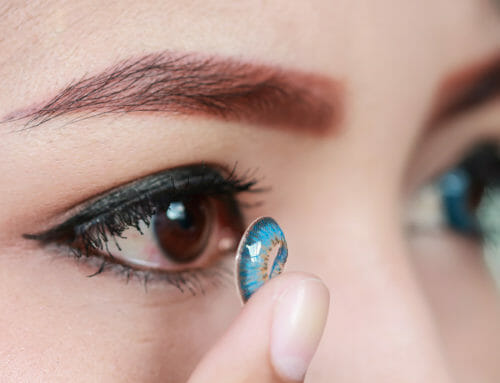
Blurred Vision In Pregnancy: What To Expect
Pregnancy can affect anything from your hair, skin and sometimes even your vision. Women often experience a myriad of physiological and hormonal changes during pregnancy and may report of vision changes like dry eyes, blurred and distorted vision.
Common symptoms and simple treatments
Pregnancy hormones may cause discomfort and an array of eye changes. It is common for some pregnant women to report symptoms of dry, itchy or blurry eyes with headaches and light sensitivity. This is due to their ever-fluctuating hormones. Warm compresses can be used to relieve dry tired eyes; eye drops may also be used for added comfort in such cases. Some brands of artificial tears are safe to use during pregnancy; however, it is important to discuss the best-recommended remedies or suggestions with an ophthalmologist or medical professional first.
Visual disturbances are very common among pregnant women especially those with preeclampsia. It can affect the eyes and visual pathways as a result of central nervous system irritation or swelling to the brain.
Common vision changes include headaches, blurred vision, sensitivity to light or spots in vision. Floaters and dark spots during pregnancy should be taken seriously as they may be indicative of gestational diabetes, high blood pressure or preeclampsia. Light spots and double vision may also be caused by these conditions. In such cases, it is important to consult a medical professional immediately if these symptoms occur persistently.
Why your vision gets blurry when you’re pregnant
During pregnancy, your body may retain more water. Therefore, your eyes may too. In the same way, some pregnant women experience swelling during pregnancy, salt and water retention may cause swollen lids or even affect vision. Water retention may also change the shape and thickness of the cornea which may lead to distorted or blurred vision. It is advisable to stay well-rested, hydrated and avoid a salty diet. Impaired vision changes due to fluid pressure, are often temporary. Therefore, it is not recommended to change your glasses or contact lens prescription during pregnancy.
Diabetic women should be careful
Pregnancy may exacerbate pre-existing retinal diseases. Research suggests that pregnancy worsens conditions like diabetic retinopathy and hypertensive retinopathy. It is recommended that diabetic women who plan to get pregnant should have a pre-pregnancy dilated fundus exam. This exam allows the ophthalmologist to view the eye’s interior and assess the retina, optic nerve and blood vessels.
It is important to refrain from straining your eyes and avoid corrective eye surgery during pregnancy. Eye surgery may lead to overcorrection, which would require additional surgery at a later stage. Ordering for new corrective prescription glasses and contact lenses should be delayed until postpartum when the eyes have fully adjusted.
Though pregnancy-related vision changes are generally mild, they may be a sign of something serious. If you’re experiencing any vision changes during pregnancy, it is important to get checked by a medical professional. They will be able to check if your eye symptoms are normal or if there is something underlying. Changes are known to be reversible and in a vast majority of cases, vision returns back to normal after delivery.

About the expert
Mr Hamada | Consultant Ophthalmologist and Corneal Surgeon
MD, MSc, DO (hons), FRCSEd, FRCOphth I am Samer, founder and consultant ophthalmic surgeon with over 20 years’ experience in ophthalmology. I am a world-renowned specialist in cornea, cataract and refractive surgery. I’m not only a leading surgeon but also the only dual fellowship trained in corneal diseases in children from reputable institutions in the UK. At Eye Clinic London I work closely with other consultant ophthalmologists, optometrists and orthoptists to achieve the best outcomes for our patients. Our main aim is to make sure our patients get the safest and best treatments available to them. We put your safety before anything else so you can rest assured that if you choose us you will be in the best and safest hands.



